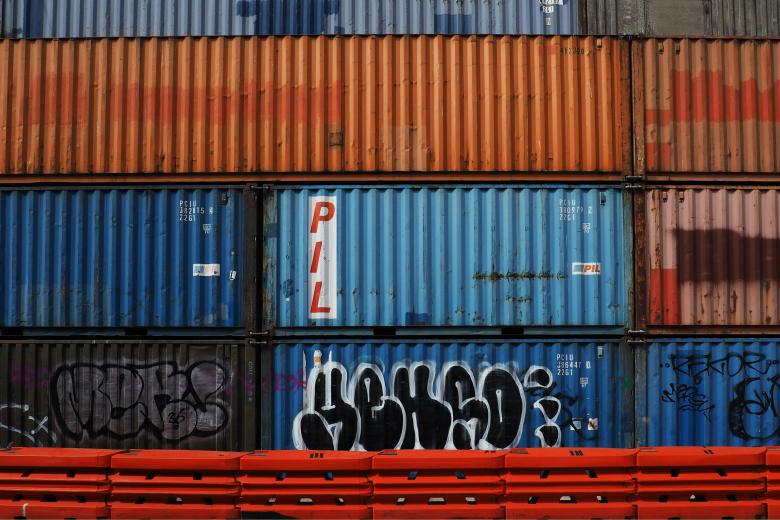Trading Softly? The EU’s Quiet Shift Toward Clean Trade and Investment Partnerships
For decades, multilateralism has been the guiding principle for regulating international trade relations between states. The European Union (EU) has long championed this approach, firmly believing that global cooperation - ideally through consensus among all countries - is the most effective way to govern state trade relations. As a fallback, the EU has also supported plurilateralism, where a critical mass of countries agrees on rules even if not everyone is on board.
However, with the World Trade Organization (WTO) - the institutional embodiment of multilateralism - struggling to deliver meaningful outcomes, the EU, like many others, has increasingly turned to regional (or preferential) trade agreements, while remaining actively involved in plurilateral talks (for example on digital trade and investment facilitation).
In addition, in response to shifting geopolitical and economic realities, the EU has been increasingly resorting to unilateralism. Its unilateral trade-related measures aim to leverage trade as a tool to advance the EU’s ambitious sustainability and, more recently, its economic security agendas (think, for instance, of corporate sustainability due diligence, the carbon border adjustment mechanism, or the anti-coercion instrument).
As a result, the EU's trade policy toolkit has not only grown in scope but also in complexity. A helpful overview by Europe Jacques Delors (March 2025) highlights the diversity of these instruments. The latest addition to the party is a new category of soft-law mini-trade arrangements known as Clean Trade and Investment Partnerships (CTIPs).
What Are CTIPs?
Announced in the European Commission President’s political guidelines for 2024–2029, CTIPs are envisioned as flexible, non-binding agreements aimed at securing EU’s access to critical raw materials and minerals necessary for the green transition. Rather than full-fledged trade or investment treaties, CTIPs focus on targeted collaboration with resource-rich partner countries.
The first CTIP is currently being negotiated with South Africa, following the EU–Africa Summit held in Cape Town in March 2025. However, little is publicly known about what’s actually on the table - unlike with traditional trade deals, where the Commission typically publishes its negotiating positions on the website. We do know that this CTIP will be a soft-law arrangement and will be paired with a €4.7 billion Global Gateway Investment Package to fund South Africa’s energy transition.
The stated aim is to ‘unleash’ investments in clean energy, raw materials and green hydrogen by improving conditions for EU investors and unlocking both public and private financing. According to the Commission President’s opening remarks at the EU-Africa Summit, these investments will ‘support local jobs, local added value, and high environmental and labour standards.’ The ultimate goal: help position South Africa as a global leader in clean hydrogen, while simultaneously diversifying and strengthening EU supply chains. This is to be achieved through an integrated package combining trade and investment facilitation, regulatory cooperation, and strategic funding.
But There Are Red Flags
Despite these lofty goals, several concerns have surfaced. First, there is a transparency issue. As a soft-law instrument, the CTIP process bypasses the European Parliament, which is normally required to give its consent to EU trade agreements. This lack of democratic oversight raises legitimate accountability questions.
Second, the non-binding nature of CTIPs means that any commitments - no matter how ambitious - are not legally enforceable. This may i.a. weaken the ability to ensure meaningful follow-through, especially on sustainability or labour standards. It has been argued that establishing binding responsibilities, also for investors, along with mechanisms to enforce them, could help guarantee that EU investors operating in CTIP partner countries comply with high social and environmental standards set by EU legislation, partner country laws, and international commitments.
Third, there is an underlying risk that CTIPs might revive old extractivist dynamics, where resource-rich countries are seen primarily as suppliers of raw materials for European industries, rather than equal partners in sustainable development. This could conflict with the need to align trade with environmental and development objectives.
Why Not Use a SIFA Instead?
Given these concerns, one might ask: Why not pursue a Sustainable Investment Facilitation Agreement (SIFA) instead? SIFAs, relatively recently introduced by the EU as a new type of investment treaty to be negotiated with African countries, are designed to facilitate sustainable investments. The only SIFA concluded so far - between the EU and Angola in late 2022 – even includes a sustainable development chapter similar to those in EU preferential trade agreements. On paper, a SIFA seems tailor-made to promote ‘clean’ investment in Africa. So why not use this model with South Africa?
The likely answer lies in scope. While a SIFA is focused solely on investment facilitation, a CTIP appears to bundle investment facilitation with regulatory cooperation and, more importantly, direct financial commitments via Global Gateway. In other words, a CTIP is not just a trade or investment agreement, it is a political and investment instrument.
The Shadow of Old Investment Treaties
Another complication is the legal framework that will govern European investments made under CTIPs. Many of these investments, particularly in resource extraction, are likely to be covered by old-generation bilateral investment treaties (BITs). These treaties typically offer broad, investor-friendly protections with limited regard for a host state’s right to regulate in the public interest.
South Africa has terminated most of its BITs as part of a broader backlash against such one-sided agreements. However, treaties with three EU member states (Sweden, Finland, and Czechia) remain in force. And if CTIPs are extended to other African countries, around 110 old-generation BITs between EU member states and African countries will apply. Of these, only one (a 2019 BIT between Cabo Verde and Hungary) represents a ‘new-generation’ treaty with a more balanced investment protection sensitive to the host state’s right to take regulatory measures aimed at achieving legitimate policy objectives, such as the environmental protection. This means that EU investments in South African clean energy or mining projects, no matter how controversial and how ‘clean’ in reality, could be shielded under outdated legal protections that limit the host state’s regulatory flexibility.
A Strategic Blind Spot?
This remains a broader, unresolved issue: Why does is the EU and its member states continue keeping outdated BITs, and concluding new ones that still offer protections to all types of foreign investments – ‘clean’ or not? Even in ‘modern’ investment agreements, it remains unclear whether host states retain sufficient room to regulate in pursuit of environmental or social goals. And yet, the EU continues to promote legal protections that apply equally to high-impact extractive industries and low-impact green technologies. This is especially troubling given the EU’s own decision to withdraw from the Energy Charter Treaty, a similarly outdated investment agreement, precisely because of its lopsided protections.
Looking Ahead
If CTIPs are to play a positive role in the EU’s green and geopolitical strategies, they must be designed carefully to avoid repeating past mistakes. They should ensure transparency and institutional oversight, including in the negotiation stage, align fully with sustainability and development objectives, and clarify how they interact with existing BITs and legal protections. Otherwise, the EU risks creating the very conditions - unaccountable investor privileges and regulatory handcuffs - that it has worked hard to reform elsewhere. In addition, as argued in a previous blog, the EU and its member states need to reconsider the scope of its investment treaties and exclude protection of ‘unclean’ investments.
-
The way to Geneva and INC-5.2 after the IACtHR Advisory Opinion on the Climate Emergency and Human Rights
How might the IACtHR Advisory Opinion on climate emergency and human rights reshape the Plastics Treaty negotiations?

-
Rules Under Fire: The Case for International Trade Law Today
On 17 April, many of us had the pleasure of attending an IGIR Expert Lecture by John Clarke, former Chief Agriculture Negotiator of the European Union and former Head of the EU Delegation to the World Trade Organization and the United Nations in Geneva. He is currently a fellow at the Maastricht...

-
AI-assisted consumer: Is the proposed European Artificial Intelligence Act ready to embrace ChatGPT?
ChatGPT’s rapid virality sparks both enthusiasm for using the product and concerns about consumer protection. Protecting consumers in the age of AI was also a central topic at the AI-Assisted consumer seminar, co-organized by MaRBLe, GLaw-Net, and IGIR.

